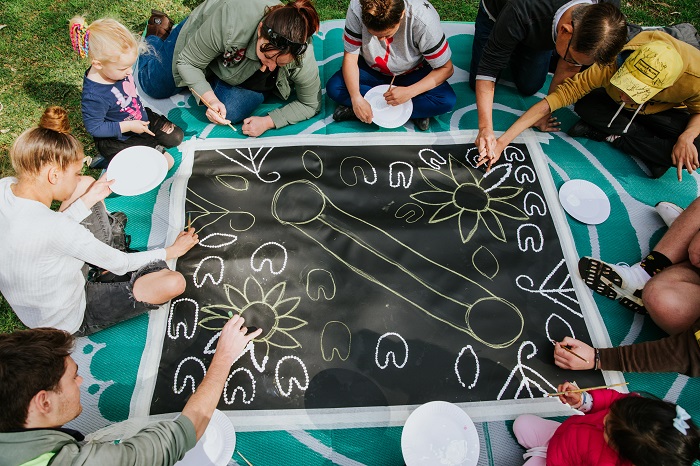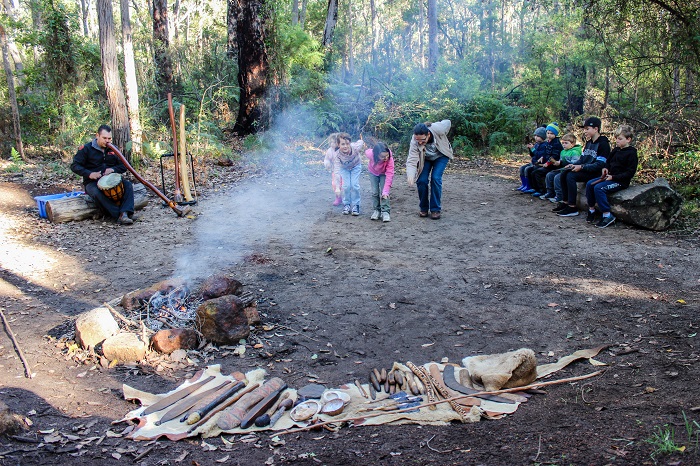Aboriginal art workshop at Nature Play WA and City of Gosnells’ International Play Day event with Urban Indigenous
It is National Reconciliation Week and I would like to reflect on what I think it means for the children in our community.
I will begin with my own lived experience, which, as a non-Aboriginal Australian, places very real limitations on my understanding of reconciliation. Limitations which are, however, revealing in and of themselves.
I was born in Western Australia and I grew up without knowing that the traditional owners of the land I called home are the Whadjuk people of the Noongar nation. At school and through popular culture I learned more about the Lakota chief Sitting Bull than I did about Yagan. At 10-years-old I could ask how to get to the train station in French and order hot-chocolate in German, but I had no idea how to say hello (kaya) in Noongar until I was in my forties.
I don’t believe the ignorance I was raised in was the wilful intention of any of the people who had a hand in my childhood. I don’t think my parents, my uncles and aunties, coaches or teachers made a decision not to share a knowledge of Aboriginal culture with me. They shared what they knew and could not share what they didn’t. They were bound up in a collective ignorance shared with them by the adults in their lives and the community attitudes of their time.
Camp Nature Play Aboriginal cultural teachings with Koomal Dreaming
But the problem with ignorance is that it is more than just an absence of knowing. It also an absence of focus, of priority, and of assigned value. Put simply, what we teach marks what we think is important. And the lack of importance non-Aboriginal Australia has assigned to Aboriginal culture over the course of Australian history is not only disrespectful, it is harmful, it is impoverishing of us all, and it has to change.
It has to change because our culture and our history are inextricably part of who we are. And every Australian child should grow up feeling that who they are is valued by their whole community, that their culture and history is important, and that they are as entitled to respect as every other member of the community.
Without that, we will forever be a broken society. And broken societies produce broken people.
To me, that respect, and shared value is the bedrock of reconciliation. This year’s theme for National Reconciliation Week is: More than a word, Reconciliation takes action, and action is what we must take to see real change. Feeling respect is not enough, we need to show it and it needs to permeate all of our systems. On a personal level, one way we can show respect is by actively seeking to grow our understanding of Aboriginal culture, step by step, and sharing that knowledge with the children in our care so that they grow up with more cultural understanding than their parents did.
When we do that we will do more than just share knowledge, we will demonstrate that it is a priority for us. We help build a better Australia for all children, and we will learn not only about, but also from, Aboriginal culture that has so much richness to contribute to our shared experience of living in this beautiful place.
Nature Play WA acknowledges that the Whadjuk People are the Traditional Owners of the country on which our office sit.
Ngala kaaditj Whadjuk moort keen kadak nidja boodja.


